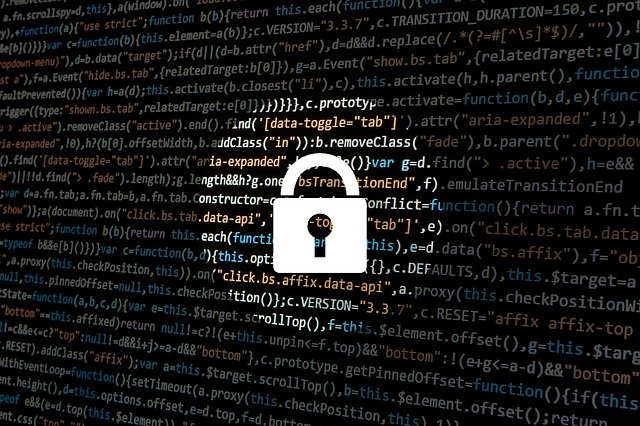In a world full of hackers, data breaches, and extensive disregard for online privacy, it’s easy to feel that you can’t be safe online. But don’t lose hope yet. Don’t get rid of your social media account or quit shopping online.
Although the Internet is mainly unsafe, you can protect your safety in a few quick ways. And guess what? You don’t need to break the bank or create banner accounts to protect your personal life.
All you need is a few of these tips, and you can surf the net safely. Sounds good? Here we go.
Activate Incognito Mode

The incognito mode helps you surf the web without worrying that someone could view your web history at a later date. It also protects you from websites that like to collect your data for the sake of advertising.
Unfortunately, private browsing does not offer a permanent solution. Your Internet Service Provider can view your search history. If you browse through a work computer, your employer can also get hold of this information.
So, what’s private browsing best for? Activate incognito mode when you want to hide your search history from people close to you. Also, use it when you want to buy stuff online but don’t want websites to bombard you with adverts.
Use a VPN
Virtual private Networks offer fool-proof protection against nearly every online threat. Let’s start with data encryption. The best VPNs use military-grade techniques to protect your data from hackers, governments, and other dangers you can think of.
More importantly, they hide your IP address from the Internet so that you can do anything online and no one can trace it to your computer. How does that work?
VPNs give you a temporary address from a city or country of your choice. You could use a London IP address while you’re in Tokyo or a Beijing address while in New York. With this technique, you can break geo-restrictions like streaming Netflix US or watching English football.
NordVPN, one of the best VPNs in the industry, has a detailed explanation about IP addresses. They also feature a series of helpful tools like What is my IP—a free service that shows crucial details about your computer’s address and location.
Secure all Online Accounts
Cyber attackers target people with vulnerable online accounts more than those with secured accounts. So, create unique passwords for social media, emails, shopping sites, and work-related accounts.
If you’re worried about forgetting your passcodes, install a password manager. Dashlane, Robo Form, and Last Pass are some of the best names in this business. They store your passwords and make it easy to access them at a future date.
Another useful tool for protecting online accounts is Two-Factor Authentication. It adds an extra layer of protection so that anyone who gets hold of your passwords can’t log in instantly.
Instead, they must input a code sent to your phone number, email address, or an authenticator app. In others, 2-FA makes it a tad challenging for people to hack your online accounts.
Click with Caution
Many hackers use simple ways to attack your digital devices. They could send you a bait—say coupon codes with a link to their website. If you click it, you’re transferred to a site that collects as much of your information as possible.
Another simple trick is to offer freeware. Maybe you need a tool that can reduce junk on your laptop. Or you want a free video game. Cybercriminals will usually give you freeware but fill it with malware.
To protect your data, avoid suspicious links and websites. Some browsers tend to inform you when a site looks unsafe. But as a general rule, don’t click links unless you are sure of their safety.
Update Software and Install an Antivirus
Outdated software and apps have vulnerabilities that can help hackers access your data. They also make your digital devices prone to acquiring viruses and ransomware. The problem is worse if you lack an antivirus.
An antivirus can shield you from phishing scams, adware, worms, and all other digital threats. That way, a minor vulnerability doesn’t lead to plenty of damage. The best part of antimalware programs, however, is that they protect multiple devices.
One antivirus subscription can protect all the digital devices in your home: WiFi router, laptops, desktops, smartphones, and tablets. Another benefit is that they offer comprehensive protection, from scanning hard drives and memory cards to preventing ransomware and malware.
Share What’s Necessary
Many websites and social media networks encouraged us to share everything about our private lives. But do you have to share your home address with everyone on Facebook? Is it necessary to share all the photos in your gallery?
The problem with oversharing is that it helps cybercriminals get access to more important data. Let’s say they want to know your mother’s maiden name to break into your email. Or they need your home address or high school name.
These are pieces of information cyber attackers can easily find on many people’s social media account. If you must share these details, though, use secure emails, activate Two-FA, and enable VPNs while browsing online.
Use a Different Website
What’s the best way to avoid all the data breaches Facebook is often accused of? Use an alternative social network. It’s a simple move that offers better security for your private information.
Of course, Facebook isn’t the only tech-giant with data privacy problems. Google, Twitter, and Amazon have had their fair share of criticisms. Fortunately, there’s always an alternative to nearly every site online.
Need a safer search engine? Try Duck, Duck, GO. Its CEO has an insightful article on Quora, showing how his company protects your data better than all other search engines out there.
Your Turn
The best way to protect your digital footprint is to take a proactive approach. That means you install an antivirus, a VPN or and set unique passwords for all your online accounts. When you’re doubtful about a site or link, avoid it. And if you have to, switch to a different ISP, social media, or search engine.



